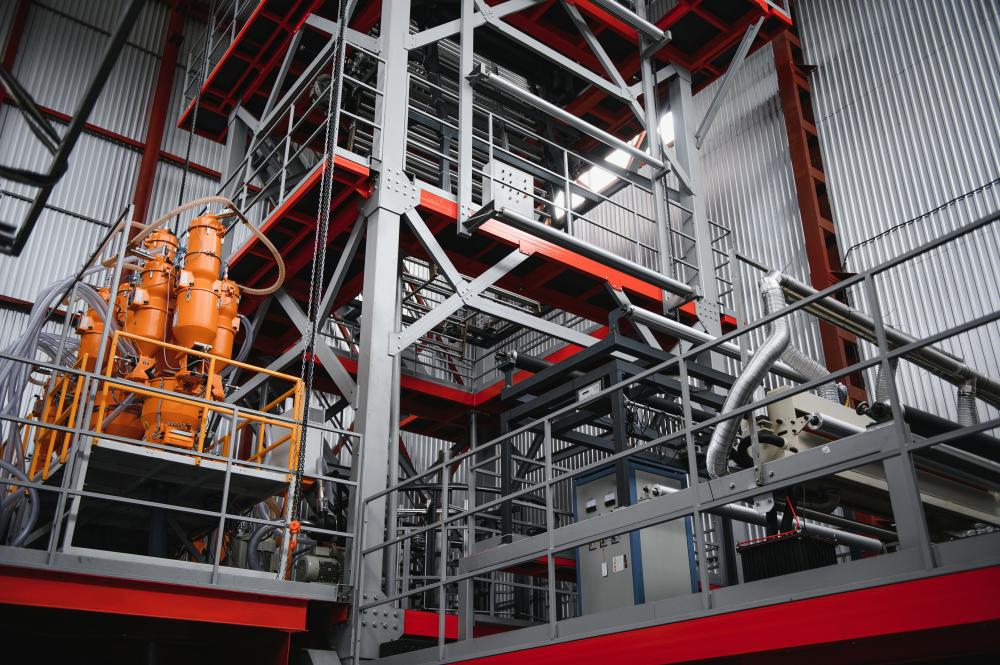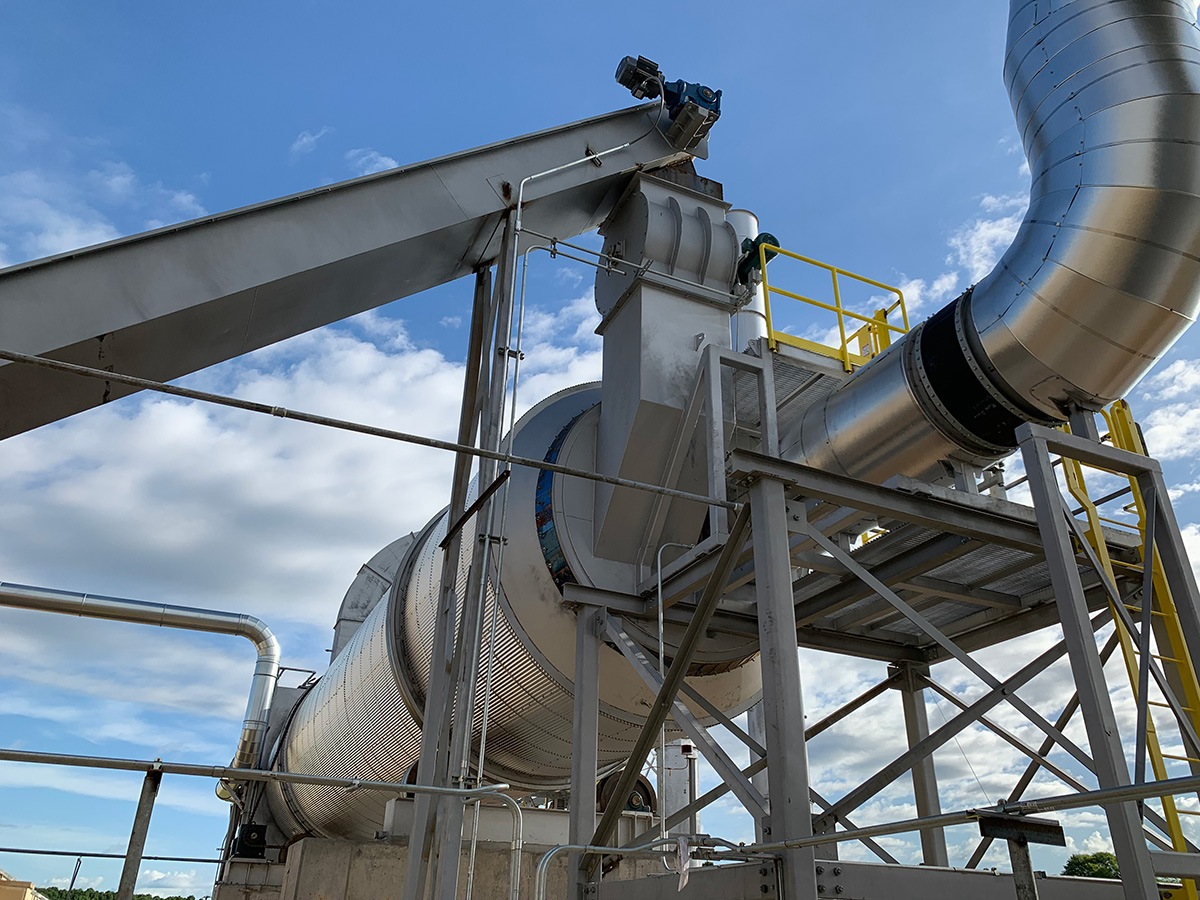
What Is a Biomass Furnace?
At its core, a biomass furnace is a type of heating equipment that utilizes organic materials as its fuel source, as opposed to traditional fossil fuels. From the perspective of us at Player Design Inc., the beauty of a biomass furnace lies in its ability to convert waste products from agricultural processes, wood manufacturing, and even municipal waste into a clean, efficient source of heat and energy. The process not only provides an economical heating solution but also aligns with our commitment to sustainable environmental practices.
Benefits of Biomass Furnaces
Environmental Impact
One of the foremost benefits of a biomass furnace is its reduced environmental impact. By leveraging renewable resources, these systems contribute significantly less to pollution and greenhouse gas emissions compared to conventional heating options. This harmonizes with our ethos at Player Design Inc., where we consistently strive for solutions that lower our carbon footprint.
Economic Advantages
Adopting biomass furnaces can lead to substantial cost savings on heating and energy. The initial investment is often offset by lower fuel costs, especially in regions where biomass fuels are readily available and inexpensive. For industries that produce organic waste, the opportunity to convert by-products into fuel can transform waste management into a revenue stream.
How Biomass Furnaces Work
Biomass furnaces operate by burning organic materials to produce heat. The combustion process is carefully regulated to ensure efficiency and minimize emissions. Heat exchangers within the furnace then transfer this heat to air or water, which is circulated to provide space heating or hot water. Advanced systems, like those we engineer at Player Design Inc., may incorporate automated fuel feed systems and sophisticated controls to optimize performance and convenience for our clients.
Types of Biomass Fuels
- Wood Chips: Affordable and widely available, sourced from lumber operations and forest management activities.
- Pellets: Made from compressed organic material, pellets are easy to store and handle, offering a highly efficient fuel source.
- Agricultural Waste: Includes crop residues, husks, and shells, representing a sustainable use of by-products.
- Municipal Solid Waste: Diverted from landfills, processed waste can be utilized as a fuel, contributing to waste reduction and management goals.
Custom Engineering Solutions
At Player Design Inc., our approach to biomass furnace technology focuses on custom solutions tailored to the specific needs of our clients. Whether integrating with existing heating systems or designing a standalone biomass energy plant, our engineering team brings innovative design and state-of-the-art technologies to the table. Our patented technologies and comprehensive project management ensure that each implementation is optimized for maximum efficiency, reliability, and environmental compliance.
Case Study: Streamlining Energy Efficiency
One of our hallmark projects involved designing a biomass furnace system for a large wood products manufacturer. Faced with high waste disposal costs and rising energy expenses, the client sought a sustainable alternative. By implementing a biomass furnace tailored to utilize their wood waste as fuel, we significantly reduced their operational costs and environmental impact. This project underscores our commitment to innovative energy solutions that address both economic and ecological challenges.
Looking Forward: The Future of Biomass Furnaces
As we look to the future, the potential for biomass furnaces in contributing to renewable energy goals is immense. Innovations in feedstock processing, combustion technology, and system efficiency hold the promise of making biomass an increasingly viable and attractive option for a broad range of applications. At Player Design Inc., we are excited to be at the forefront of this evolution, driving advancements that expand the use of biomass furnaces across industries and communities.
Our vision extends beyond current applications, envisioning a world where biomass furnaces play a pivotal role in global energy strategies. By continuing to refine our technologies and expand our reach, we aim to empower more businesses and communities to embrace biomass as a key component of their energy portfolio. The journey toward a more sustainable and efficient energy future is one we are proud to lead.

Are biomass boilers worth it?
Definitely, and here’s why: Investing in biomass boilers can lead to significant economic and environmental benefits. Initially, the cost might seem high, but the long-term savings on energy bills and the potential for generating income through government incentives like the Renewable Heat Incentive (RHI) can offset this. From our experience at Player Design Inc., clients who’ve transitioned to biomass systems have seen a reduction in their carbon footprint and operational costs. Biomass boilers utilize renewable sources, turning agricultural, industrial, and domestic waste into energy, thereby offering a sustainable alternative to fossil fuels. Imagine converting your waste products into fuel instead of paying to dispose of them; that’s an opportunity for both cost savings and environmental stewardship.
What are the disadvantages of biomass boilers?
While biomass boilers present numerous advantages, there are a few considerations to bear in mind. One significant challenge is the upfront cost of the boiler and installation, which can be higher than traditional heating systems. Storage space is another factor; biomass fuel requires considerably more space than fossil fuels. Additionally, there’s the need for regular maintenance to ensure the system runs efficiently and safely. It’s also important to source biomass fuel responsibly to ensure sustainability and to consider the emissions associated with transporting fuel. However, in our work at Player Design Inc., we believe these challenges can be effectively managed with proper planning and innovative engineering solutions, making the benefits far outweigh these disadvantages.
Is biomass heating cheaper than gas?
Comparatively speaking, biomass heating can be more cost-effective than gas in the long run, particularly with the fluctuating prices of fossil fuels. Biomass fuels such as wood pellets, chips or agricultural waste are often cheaper and more stable in price. Additionally, with the right setup, biomass systems can have higher efficiency levels, converting a greater proportion of fuel into usable heat. For businesses and industries producing their own waste that can be used as biomass, the savings are even more pronounced since it turns a disposal cost into an energy resource. Of course, the exact financial comparison depends on various factors including fuel prices, system efficiency, and initial setup costs. However, our clients at Player Design Inc. typically find that biomass heating systems become more economical over time, especially when considering potential incentives and the lower environmental impact.
Do biomass boilers use a lot of electricity?
Biomass boilers do require electricity to operate some components, such as the fuel feed system, fans, and controls. However, the amount of electricity used is relatively small compared to the energy output of the boiler. Innovative technologies and system designs can optimize the electricity consumption, making it a minor factor in the overall efficiency of the system. At Player Design Inc., we focus on engineering solutions that minimize electrical usage without compromising performance, ensuring that the environmental and economic benefits of biomass energy are maximized. It’s crucial to consider the bigger picture — while there is some electricity use, the renewable nature of the biomass fuel and the overall reduction in fossil fuel consumption make it a highly sustainable option.
How do custom engineering solutions enhance the performance and sustainability of biomass furnaces?
Custom engineering solutions are at the heart of maximizing the performance and sustainability of biomass furnaces. At Player Design Inc., we approach each project with a unique perspective, understanding that every client has specific needs and challenges. By employing advanced technological innovations, tailored designs, and comprehensive project management, we can optimize the efficiency, reliability, and environmental compliance of biomass systems. Custom solutions may include integrating with existing heating systems, designing advanced combustion processes to reduce emissions, or creating automated fuel feed systems to improve operational efficiency. Our patented technologies and bespoke engineering approaches ensure that each biomass furnace not only meets the immediate needs of our clients but also supports their long-term sustainability and profitability goals. This personalized touch enables us to turn potential challenges into opportunities for innovation and improvement.